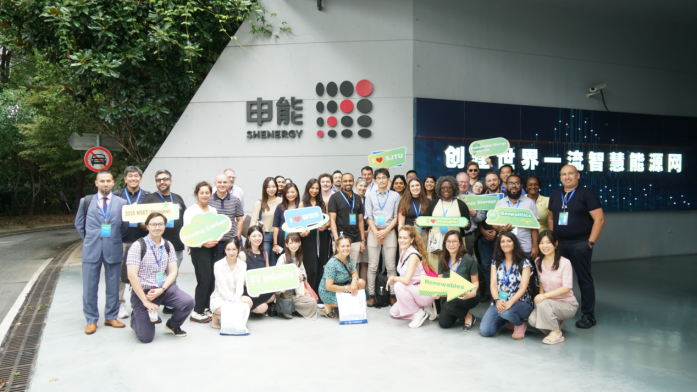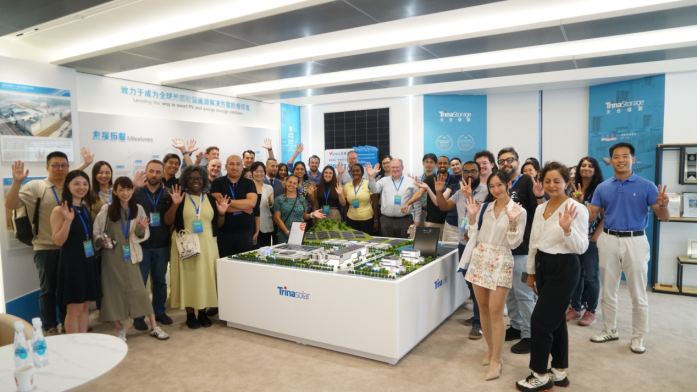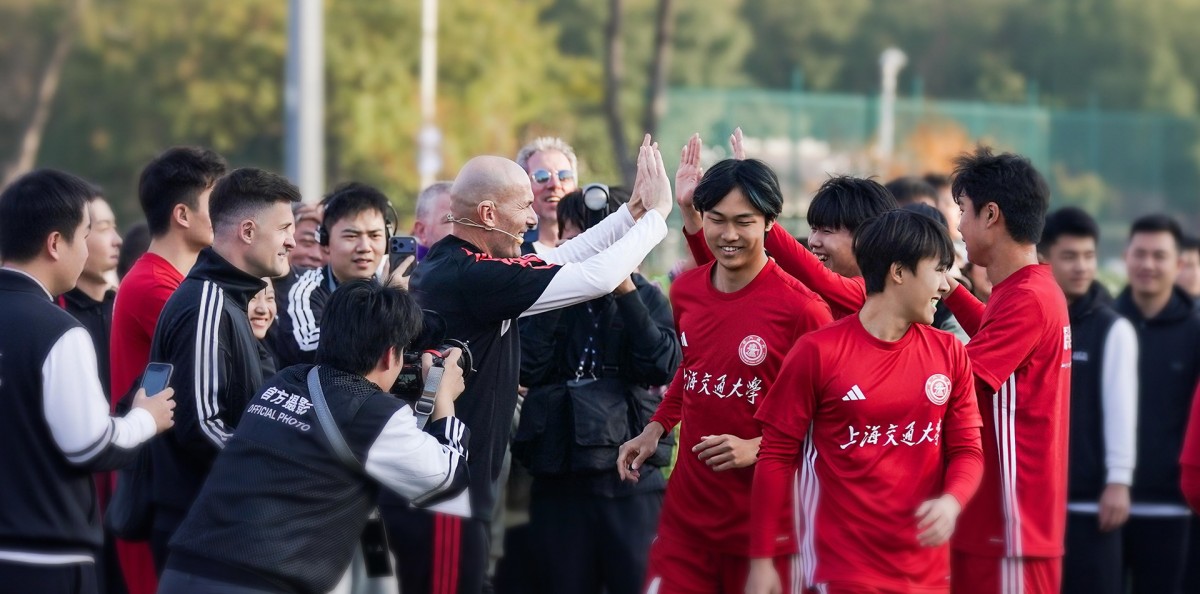A dynamic, week-long collaboration program between Shanghai Jiao Tong University (SJTU) and Warwick Business School (WBS) concluded successfully, reinforcing SJTU's commitment to global sustainability leadership. The "2025 Managing Sustainable Energy Transitions (Shanghai)" Training Program, held from September 22 to 26, gathered a diverse cohort of international participants to explore in-depth strategic planning, implementation pathways, practical challenges and China's practices in sustainable energy transition, empowering international students to actively engage in the global green and low-carbon transformation.
Co-organized by SJTU's China-UK Low Carbon College (LCC) and Warwick Business School, the intensive program focused on analyzing pathways, addressing challenges and showcasing China's pioneering role in the sustainable energy transition. Nearly 40 students from Warwick Business School, representing 16 countries — including the UK, Colombia, Greece, India, Ireland, Japan and Germany — convened at Shanghai Jiao Tong University to share global perspectives and collectively chart a course toward a greener future.
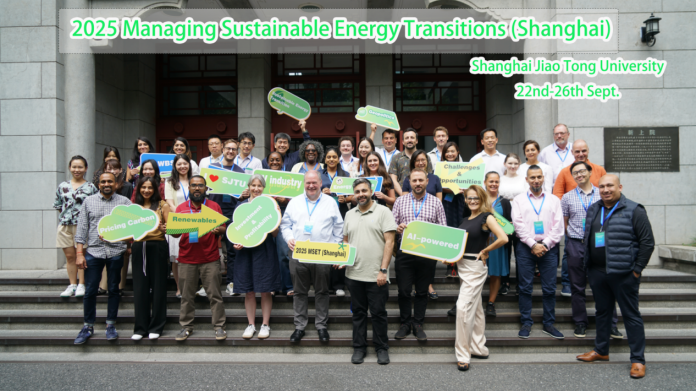
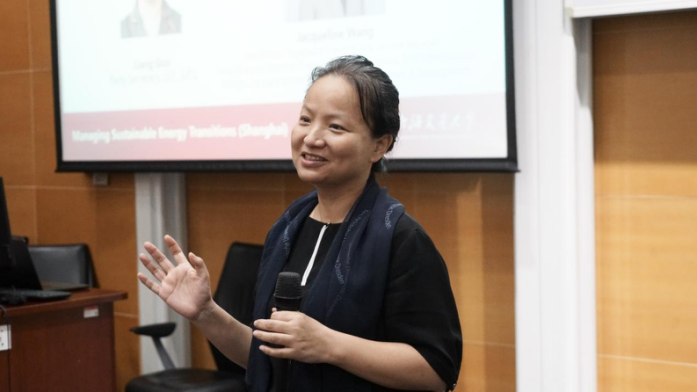
The program commenced with an engaging opening ceremony that established a tone of international cooperation and academic excellence. Liang GUO, Chief of China-UK Low Carbon College, extended a heartfelt welcome to the international students. Highlighting the rich heritage of Shanghai Jiao Tong University and the distinctive academic profile of the LCC, she introduced the meticulous, internationally-focused design of the curriculum. She emphasized that, by leveraging the strengths of both the Low Carbon College and Warwick Business School, this program is designed to immerse students in global insights while deeply engaging with Chinese practices. Through this program, she hoped that the participants would forge a lasting international learning community, embracing cultural diversity and broadening their professional horizons.
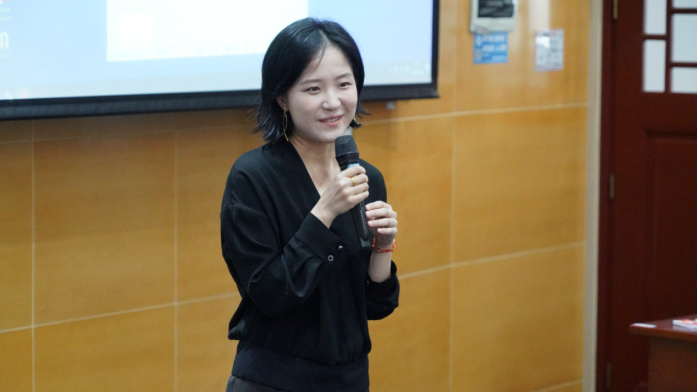
Following this, Jing WANG, Executive Vice General Manager of International Cooperation from the Shanghai Lingang Special Area International Investment & Development Co., Ltd. of the China (Shanghai) Pilot Free Trade Zone Lingang Special Area Administration, provided an insightful overview of Lingang Special Area and its policies, outlining its strategic significance as a national development frontier. She noted that the Lingang Special Area Administration has maintained close cooperation with the Low Carbon College, expressing hope that the program would deepen the participants' understanding on low-carbon innovation of the Lingang Special Area.
Finally, Professors David Elmes and Michael Bradshaw elaborated on the program's background, curriculum, learning objectives and itinerary.
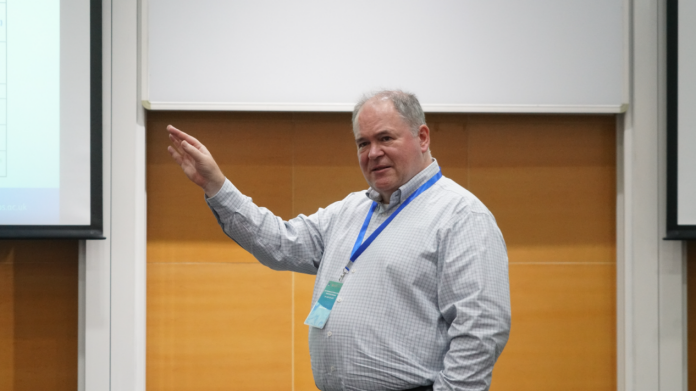
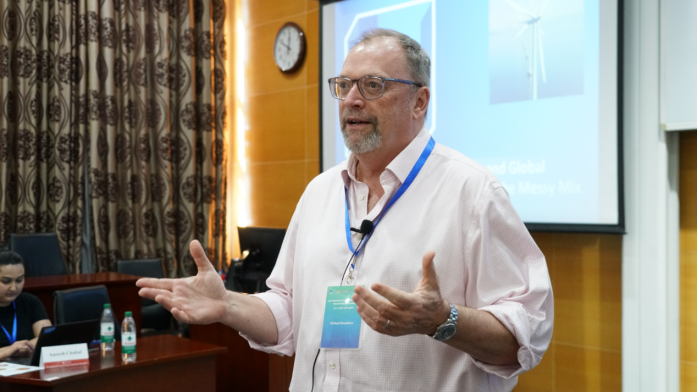
To reflect its international character, the program featured a globally benchmarked curriculum, with faculty professors from both China and the UK, as well as industry experts with rich practical experience who shared corporate success stories. From fundamental theories to cutting-edge low-carbon technologies, from classic cases to innovative practices, from classroom learning to on-site enterprise inspections, from classroom interactions to group discussions, the program equipped participants with macro-comparative perspectives and strategic analysis tools bridging eastern and western approaches.
Field trips provided participants with invaluable hands-on learning. Participants visited the Shanghai Urban Planning Exhibition Center, the Hongqiao CCHP Energy Station, Trina Solar, NIO and the Shanghai Environment and Energy Exchange for on-site learning and exchanges. Through these immersive experiences, participants explored and compared diverse technological pathways and management models, gained in-depth insights into China's innovative low-carbon practices, reflected on the opportunities and challenges of international cooperation, and witnessed firsthand the Chinese government’s dedicated efforts and achievements in advancing green and low-carbon socio-economic transformation.
This program successfully transformed the concept of "internationalization" into action, creating a miniature “global energy dialogue space” where ideas were sparked through exchanges, contributing wisdom and strength to build a global energy community with a shared future. This program is more than an academic course — it is a tangible demonstration of SJTU's international academic excellence and global responsibility as a leading Chinese institution.
The participants departed with a profound understanding that strengthening international cooperation and deepening global industrial chain collaboration are crucial pathways to a greener, more inclusive and sustainable future. The week in Shanghai was not only a rich academic and cultural journey that enhanced professional competencies, improved international communication skills and broadened global perspectives, but also provided a renewed understanding of China's pivotal role in the green transformation.
Insights
Seema Sohoni, Global MBA student from WBS, British
I found this course quite informative. To be honest, I initially hesitated about participating and I didn’t really know what to expect. But the staff have been really great, really helpful. This program created the opportunity for me to meet so many different people from various backgrounds, and this kind of communication has greatly broadened my understanding of China, far exceeded my expectations in terms of learning outcomes. Now, my mind is flooded with more questions I wish to explore. This land of China is brimming with vitality, serving as a global paradigm. I really enjoyed myself here.
Emerald Phan, Global MBA student from WBS, Vietnamese
I am truly delighted to participated in this insightful course. To be honest, for someone with no prior background in energy at all, I was a bit nervous. However, after considering many factors, I chose this course and I am happy I did it. Not only owing to the amount of the insightful courses and the visits, but also because of the enthusiasm and passion I felt when sharing the information. The instructors delivered a wealth of information in a passionate way and broke down complex technical terms into accessible and comprehensible explanations, which enables even a layperson like me to fully understand. This course gave me a tangible sense of how energy transition connects to everyone, moreover it ignited my fervent passion for green energy upon completion of the course.
Arnold Weeda, Global MBA student from WBS, Dutch
The visit today was fantastic! The host who received us has rich experience and the commentary throughout was highly professional. Especially as an MBA student, to witness firsthand such an enterprise that not only leads within its industry but has become a global benchmark is truly eye-opening. They demonstrated exceptional transparency when presenting their innovative projects, employing engaging and vivid methods that kept the audience fully immersed throughout. Being here, seeing the factory operations firsthand, observing battery-changing procedures, hands-on experience with the cars and experience the company's distinctive cultural atmosphere – it has been absolutely amazing and very impressive. I shall certainly share everything I experienced today with all my classmates, exactly as it happened.
Damien Gilchrist, Global MBA student from WBS, British
It has been an absolutely fascinating visit, truly inspiring. The company’s grand scale of ambition and the outstanding contributions throughout the energy transition process have deeply impressed us. I will cherish this invaluable experience, especially the highly informative insights about how can we apply these successful practices to our own domestic context in the UK. This trip has provided lots of deep learning and I am very grateful for this learning opportunity.
